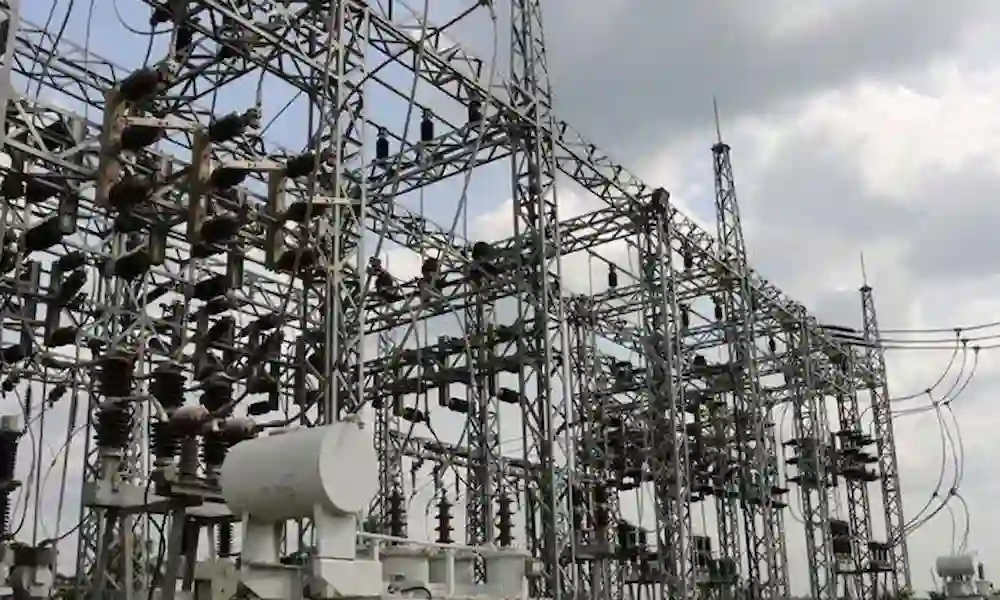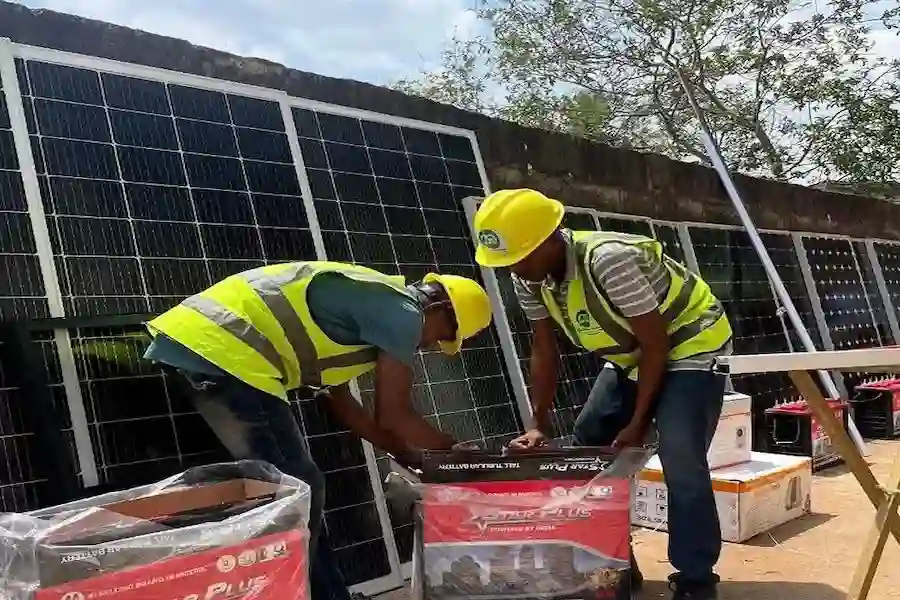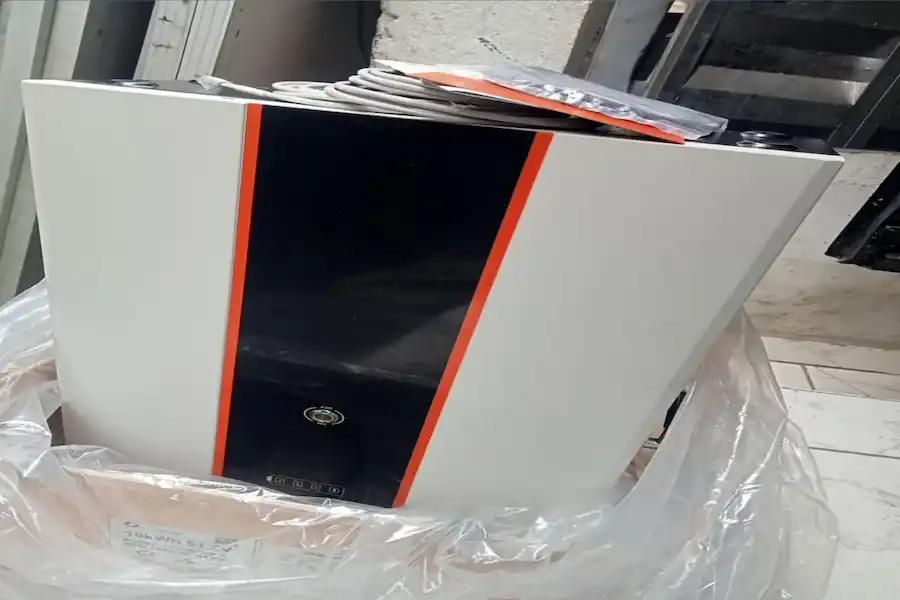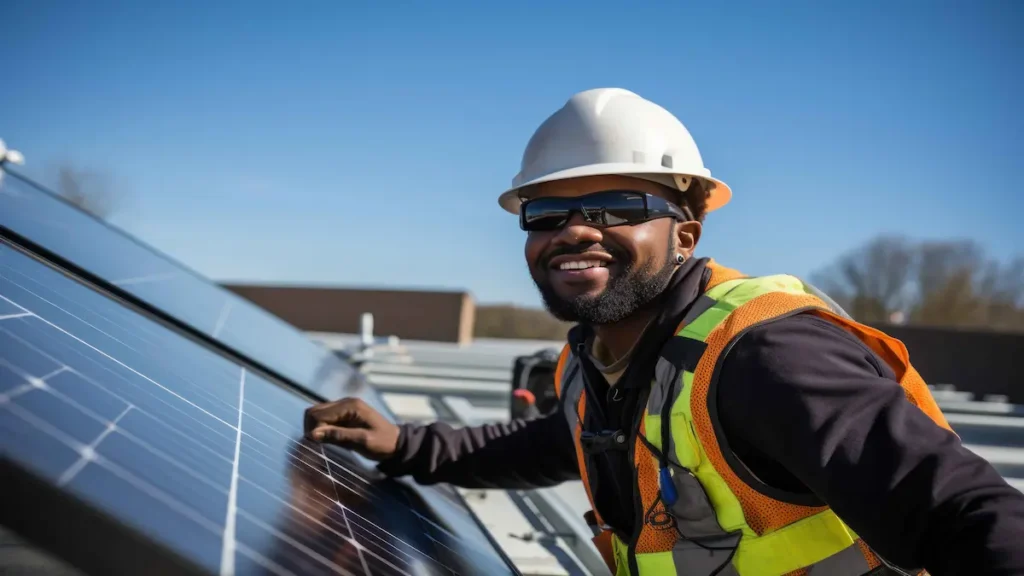Electricity in Nigeria is still unreliable in 2026, so more people are looking up solar panel prices and searching for affordable ways to keep the lights on. Blackouts happen all the time. Fuel and generator repairs just keep getting more expensive. Plus, people worry about the environment a lot more now. That’s why solar energy stands out as a smart, dependable solution.
Last updated by John Tanko, Jan 9, 2026
Solar power gives you clean, quiet electricity and can save money over time. It’s honestly a solid upgrade from noisy diesel or petrol generators. Still, the price of solar panels, inverters, batteries, and setting everything up can swing a lot, depending on how much power you need, which brand you choose, and where you live.
So, here’s a fresh guide for 2026. Inside, you’ll see the latest solar panel prices in Nigeria, top choices for inverters, which solar generators are getting the most attention right now, what installation really costs, and trusted brands like Felicity Solar. The goal? To help you pick the right solar setup for your budget and how much power you actually use.
Why Nigeria is Suffering from Electricity Problems

Nigeria’s power problems run deep. The country’s electricity sector is tangled up in old, crumbling infrastructure, corruption, and years of mismanagement. Investment just hasn’t kept up. Most of the power comes from outdated thermal plants that break down all the time, and the national grid can’t seem to catch a break—collapses happen several times a year, usually because the system gets overloaded or something technical goes wrong.
A lot of the power plants barely operate at half their potential. Sometimes there’s not enough gas to go around. Other times, theft or poor maintenance keeps things from running smoothly. On top of that, the companies in charge of distribution—everyone calls them Discos—have their own headaches. Billing is often a mess. Electricity theft is rampant. Local infrastructure never really gets the upgrades it needs. It’s a vicious cycle, and millions of people end up sitting in the dark.
The government has tried to fix things, but the reforms haven’t really stuck. Most Nigerians don’t wait around for the grid to work anymore. They get by with generators or, if they can, solar panels just to get electricity for daily life.
How Lack of Electricity Drives Up the Cost of Living
Unreliable power hits Nigerians right in the wallet. The economy takes a hit, too. Businesses that could do well with steady electricity have to spend a huge chunk of their earnings just keeping the lights on—diesel, petrol, you name it. And it’s not just about fuel. There’s the constant hassle of repairs, oil changes, and tracking down spare parts. It all adds up, and people feel the squeeze every day.
Business owners usually cover extra costs by raising their prices, and you really see this in places like cold storage, welding, printing shops, digital businesses, and hotels. Take cold rooms and supermarkets, for example—they burn through a lot of diesel just to keep frozen food from spoiling. That expense lands right on the customers’ laps.
These days, plenty of companies bump up their service fees just to stay afloat, and, honestly, regular Nigerians end up footing the bill. It doesn’t stop there. Transport, food, electronics, fashion, health care—you name it, everything gets pricier, and that just keeps pushing up the cost of living in Nigeria.
Bottom line: electricity poverty isn’t just some abstract problem. It hits both businesses and families, directly and indirectly, making it harder for everyone to get by.
How much is a solar panel in Nigeria (2026)
Solar panel prices in Nigeria swing up and down, depending on a bunch of things—the power output, the tech (like monocrystalline or polycrystalline), the brand, and how good the panel actually is.
Here’s a closer look at what you can expect to pay on average:
How Much Is Solar Panel Prices in Nigeria (2026)
Planning to go solar in 2026? Here’s a realistic look at what solar panels are currently selling for in Nigeria. While prices can change slightly based on availability and system size, these figures reflect what most buyers are paying right now.
- 100W Solar Panel: ₦40,000 – ₦50,000
- 300W (12V) Solar Panel: ₦90,000 – ₦105,000
- 500W Solar Panel: ₦145,000 – ₦165,000
- 1000W Solar Panel: ₦270,000 – ₦300,000
Prices can move up or down depending on the brand, where you buy from, and market demand at the time. Before making payment, it’s always wise to confirm current prices from a trusted supplier.
These prices come from major online stores and trusted sellers in cities like Lagos, Abuja, and Port Harcourt. Prices might change a bit depending on where you are.
Wondering how much a 1000W solar panel costs in Nigeria? Right now, you’ll usually pay somewhere between ₦270,000 and ₦300,000, depending on the brand and how efficient the panel is. That’s enough power to handle a medium-sized home, a small business, or even serve as backup for an office.
Types of Solar Panels

There are different types of solar panels available:
There’s a few types of solar panels out there. Monocrystalline panels are top performers — really efficient and they last for ages, but they’ll cost you more. Polycrystalline panels are easier on your wallet and pretty common, though they don’t work quite as well. Then there’s thin–film panels. These are light and flexible, but you give up some performance for that convenience.
Buying Solar Panels on Jumia and Jiji
If you’re looking to buy, Jumia and Jiji.ng are the big online spots. On Jumia, you’ll see panels from 100W up to 500W, usually priced between ₦40,000 and ₦160,000. The nice thing is, you get warranties, returns, and buyer protection — plus, you can pay when your order arrives. Jiji.ng is more like an open market. You chat with sellers directly, and you’ll spot both new and used panels. Just make sure to check for a warranty and try out the product before you hand over your cash.
delivered. On the other hand, Jiji is more like an open market where you can talk directly to sellers. You might find both new and used solar panels there. However, it’s important to check for warranties and test the products before buying.
Solar Panel and Battery Prices in Nigeria

A complete solar system needs a panel, battery, charge controller, and inverter. Batteries store the electricity made during the day for use at night or during power cuts. Here’s a quick look at battery prices:
| Component | Price Range |
| 12V 200Ah Battery | ₦290,000 – ₦400,000 |
| Lithium Battery 24V | ₦,800,000 – ₦1.200,000 |
So, if you want a 300W panel combined with a 12V 200Ah battery, expect to pay about ₦470,000 to ₦510,000. But if you add a good inverter and charge controller, your total cost might go up to ₦950,000 – ₦1.200,000.
What Are the Types of Solar Batteries
Not all solar batteries are the same—each has its own ups and downs. Lead acid batteries are cheap and pretty bulky. Honestly, they don’t last forever, so you’ll probably replace them sooner than you’d like. AGM and gel batteries come sealed up tight and don’t need much fussing over. They’re a bit more hands–off, which is nice. Then there are lithium-ion batteries. These cost more up front, but they make up for it. They’re efficient, last way longer, and you don’t have to think about them much once they’re installed.
When you’re choosing a battery, look at how long it lasts, how much power it can hold, and what kind of warranty you get. Nine times out of ten, lithium batteries come out on top—they’re durable and don’t need much attention.
Solar Inverters in Nigeria (2026)
Solar inverters matter a lot. They take the direct current (DC) your solar panels make and turn it into alternating current (AC) that your home actually uses. Without an inverter, your solar setup won’t power most things around the house. Some of the big names in Nigeria right now include:
- Su-Kam: Known for being reliable and moderately priced.
- Luminous: Commonly used in homes.
- Mercury: Available in many cities.
- Felicity Solar Inverter: Gaining popularity for being reliable and affordable.
Felicity Solar offers pure sine wave inverters with capacities from 1.5kVA to 10kVA at the following prices:
- 1.5kVA: ₦230,000 – ₦250,000
- 3.5kVA: ₦500,000 – ₦590,000
- 2.5kVA: ₦435,000 – ₦470,000
- 5kVA: ₦550,000 – ₦650,000
- 10kVA: ₦1,7,000 – ₦1,8,000

What is the price of a Felicity Solar Inverter in Nigeria?
Prices start from around ₦230,000 for entry-level models and go up depending on the power capacity and features.
Inverters come in different types:
Modified Sine Wave Inverters: Cheap but noisy and not suitable for sensitive appliances.
Pure Sine Wave Inverters: Stable and safe for all appliances.
For households, pure sine wave inverters are recommended.
Felicity Solar Nigeria: Full Product Review (2026)
Felicity Solar is a global solar product brand, and it’s especially well-known in Nigeria for its durable solar inverters, lithium batteries, and panels. Their products are designed for both urban and rural electrification.
Felicity Solar Price List (2026):
| Product | Price Range |
| Felicity 300W Solar Panel | ₦89,000 – ₦105,000 |
| Felicity 500W Solar Panel | ₦145,000 – ₦165,000 |
| Felicity Solar Inverter (1.5kVA) | ₦230,000 – ₦270,000 |
| Felicity Solar Lithium Battery | ₦800,000 – ₦900,000 |
What is the Felicity Solar price in Nigeria?
Depending on the product type, prices range from ₦89,000 for panels to over ₦1,8,000 for lithium batteries and larger inverters.
Solar Generators in Nigeria
Solar generators are convenient because they combine solar panels, inverters, batteries, and charge controllers into one package. They are perfect for people who want a simple setup without complicated wiring. Some benefits of solar generators include:
Portability
No fuel cost
Silent operation
Great for small homes, students, and outdoor events
These generators work well for those in small homes, students, or outdoor events.
What is the best solar generator for refrigerator use?
A 1000W solar generator with lithium-ion storage is recommended for powering refrigerators. Look for options with at least 800Wh battery capacity.
Some models also offer mobile app connectivity and fast-charging features. They’re great for those who need reliable power on the go or during emergencies.
How to Choose the Right Solar System in Nigeria
When deciding on a solar system, consider how much energy you use, your budget, and the space you have. Here are some suggested setups:
| Need | Suggested Setup |
| Basic lighting & charging | 100W panel + 100Ah battery + small inverter |
| Home with fridge & fans | 500W panel + 200Ah battery + 2.5kVA inverter |
| Full house + appliances | 1000W+ panel + lithium batteries + 5kVA inverter |
A few extra tips include:
Opt for lithium batteries for longer lifespan
Use MPPT charge controllers for efficiency
Hire a certified solar installer for large setups
Questions People Frequently Asked
1. What is the 500W solar panel price in Nigeria?
Expect to pay between ₦145,000 and ₦165,000 depending on the brand and location.
2. Where can I buy cheap solar panels in Nigeria?
Check platforms like Jumia, Jiji, and local vendors in major cities like Lagos and Abuja.
3. Is Felicity Solar a good brand?
Yes, it’s known for durable and affordable solar inverters, panels, and batteries.
4. Can a solar generator power a fridge?
Absolutely. A 1000W solar generator with lithium battery support is sufficient for most refrigerators.
5. What is the best solar system setup for homes in Nigeria?
A 1000W+ panel system with lithium batteries and a 5kVA inverter is ideal for full-house usage.
6. Can I use solar to power my small business?
Yes. Many businesses in Nigeria are now using solar to reduce generator costs and ensure reliable electricity.
7. How long do solar batteries last?
Lead-acid batteries last 2-5 years, while lithium-ion batteries can last up to 10 years with proper care.
Conclusion
As Nigeria‘s electricity supply remains unstable, more people are turning to solar energy in 2026. It is a dependable, cost-effective, and eco-friendly choice. If you are looking for the best solar panel prices, comparing Felicity Solar products, or choosing a good solar generator, this guide will help. Switching to solar energy isn‘t just about saving money – it’s about gaining independence, stability, and peace of mind. Making this investment can protect your family or business from power shortages and rising fossil fuel costs.
Author
Top Solar Picks, founded by John, a Solar Energy Writer and Researcher with over 12 years of experience in renewable energy, is dedicated to helping homeowners and businesses make informed, data-driven decisions about solar power. John’s expertise and research pr...

